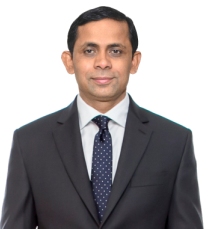Week 1: Introduction; Ecology, environment and biodiversity; Ecosystem services and its risk 1; Ecosystem services and its risk 2; Tutorial 1.
Week 2: Pollution types and sources ; Impact/consequences of pollutants; Transmission of pollutants in environment 1; Transmission of pollutants in environment 2; Tutorial 2.
Week 3: Ambient air quality and standards; Water quality and standards 1; Water quality and standards 2; Industrial pollution and standards; Tutorial 3.
Week 4: Sampling and Characterization of gas/air/emission; Sampling and Characterization of water/waste water; Characterization of solid wastes and soil; Environmental law and regulatory framework; Tutorial 4.
Week 5: Pollution prevention strategies and processes 1; Pollution prevention strategies and processes 2; Pollution prevention by using optimum water 1; Pollution prevention by using optimum water 2; Tutorial 5.
Week 6: Air pollution control 1; Air pollution control 2; Air pollution control 3; Air pollution control 4; Tutorial 6.
Week 7: Treatment of surface and ground water for drinking water generation; Treatment of domestic and industrial waste water: Schemes; Primary treatment equipment; Secondary treatment process; Tutorial 7.
Week 8: Secondary treatment equipment 1; Secondary treatment equipment 2; Advances in secondary treatment process 1; Advances in secondary treatment process 2; Tutorial 8.
Week 9: Tertiary treatment 1; Tertiary treatment 2; Sludge management; Pollution control in industry; Tutorial 9.
Week 10: Industrial pollution control in GPI 1; Industrial pollution control in GPI 2; Industrial pollution control in GPI 3; Industrial pollution control in GPI 4; Tutorial 10.
Week 11: Industrial pollution control in GPI 5 Solid waste management schemes; Solid waste transformation 1(incineration); Solid waste transformation 2 (gasification); Tutorial 11.
Week 12: Solid waste transformation 3 (Pyrolysis); Solid waste transformation 4 (Anaerobic digestion); Hazardous waste management; Management of special category wastes ; Tutorial 12.

DOWNLOAD APP
FOLLOW US